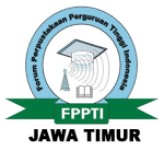Challenges and prospects of linked data technology initiative in Bangladesh Libraries
A quantitative study
Downloads
Background of the study: The mission of libraries is to collect, organize, and make available various forms of information resources for potential users. Many libraries and historically significant institutions have rare and credible information resources that have little use because few people know they are available online.
Purpose: The primary objective of this study is to ascertain the challenges and potential advantages associated with implementing Linked Data (LD) technology in libraries in Bangladesh.
Method: A quantitative survey was conducted to collect data from the library professionals of some selected public university libraries in Bangladesh.. A total of 39 responded to the survey, which was usable among the 54 responses. The response rate was 72.2%. Once the quantitative data were collected, data were transferred into IBM®SPSS® statistics for analysis.
Findings: The survey's results show that academic librarians are thoroughly aware of LD technology and believe they could have many advantages. Current research found that library professionals understand the challenges of adopting LD technologies in Bangladesh's libraries.
Conclusion: This research is the first empirical investigation of the topic within the Bangladeshi setting that the authors are aware of. It shows how the information professionals in Bangladesh see the library LD and related initiatives and the possible advantages of putting it into action.
Downloads
Ali, I. and Warraich, N.F. (2018). Linked data initiatives in libraries and information centres: a systematic review, The Electronic Library, 36(5), 925-937.
Branan, B. and Futornick, M. (2017). Linked data for production (LD4P) Retrieved from https://wiki. duraspace.org/pages/viewpage.action?pageId=74515029
Cagnazzo, L.F. (2017). Linked data: implementation, use, and perceptions across European National Libraries, Doctoral dissertation, University of Strathclyde, Glasgow.
Debruyne, C., Beyan, O., Grant, R., Collins, S., Decker, S. and Harrower, N. (2016). A semantic architecture for preserving and interpreting the information contained in Irish historical vital records, International Journal on Digital Libraries, 17(3), 159-174.
Gonzales, B. M. (2014). Linking libraries to the Web: linked data and the future of the bibliographic record. Information Technology and Libraries, 33(4), 10-22.
Hallo, M., Lujan-Mora, S., Maté, A. and Trujillo, J. (2016). Current state of linked data in digital libraries, Journal of Information Science, 42(2), 117-127.
Hannemann, J. and Kett, J. (2010). Linked data for libraries, Proceedings of the World Library and Information Congress of the International Federation of Library Associations and Institutions (IFLA ‘10), Gothenburg, August.
Hanson, E.M. (2014). A beginner’s guide to creating library linked data: Lessons from NCSU’s organization name linked data project, Serials Review, 40(4), 251-258.
Hidalgo-Delgado, Y., Xu, B., Mariño-Molerio, A.J., Febles-Rodríguez, J.P. and Leiva-Mederos, A.A. (2019). A linked data-based semantic interoperability framework for digital libraries, Revista Cubana de Ciencias Inform_aticas, 13(1),14-30.
Landis, C. (2019). Linked open data in libraries: New top technologies every librarian needs to know, LITA Guide, p. 3.
Mi, X. and Pollock, B.M. (2018). Metadata schema to facilitate linked data for 3D digital models of cultural heritage collections: a university of South Florida libraries case study, Cataloging and Classification Quarterly, 56(2/3), 273-286.
Pennington, D. and Cagnazzo, L. (2019). Connecting the silos: implementations and perceptions of linked data across European libraries, Journal of Documentation, 75(3), 643-666.
Rademaker, A., Oliveira, D., Paiva, V., Higuchi, S., Medeiros E Sá, A. and Alvim, M. (2015). A linked open data architecture for the historical archives of the getulio Vargas foundation, International Journal on Digital Libraries, 15 (2/4), 153-167.
Raza, M., Warraich, N.F. and Mehmood, K. (2019). Application of linked data technologies in digital libraries: a review of literature, Library Hi Tech News, 36(3), 9-12.
Ryan, C., Grant, R., Carragáin, E., Collins, S., Decker, S. and Lopes, N. (2015). Linked data authority records for irish place names, International Journal on Digital Libraries, 15(2/4), 73-85.
Shiri, A. and Davoodi, D. (2016). Managing linked open data across discovery systems, in Spiteri, L. (Ed.), Managing Metadata in Web-Scale Discovery Systems, Facet Publishing, London, pp. 57-90.
Wang, Y. and Yang, S. Q. (2018). Linked data technologies and what libraries have accomplished so far. International Journal of Librarianship, 3(1), 3-20. Retrieved from https://journal.calaijol.org/index.php/ijol/article/view/62
Warraich, N. F. and Rorissa, A. (2018). Adoption of linked data technologies among university librarians in Pakistan: Challenges and prospects. Malaysian Journal of Library & Information Science, 23(3), 1-13. https://doi.org/10.22452/mjlis.vol23no3.1
Warraich, N. F., Rasool, T. and Rorissa, A. (2022). Challenges and prospects of linked data technology: a qualitative study of Pakistani LIS professionals’ insights. Digital Library Perspectives, 38(2), 175-188.
Warraich, N.F. and Rorissa, A. (2020). Application of linked data technologies in libraries: Pakistani information professionals' attitudes and perceptions, The Electronic Library, 38(5/6), 1035-1051. https://doi.org/10.1108/EL-01-2020-0002
Winer, D. (2014). Judaica Europeana: an infrastructure for aggregating Jewish content, Judaica Librarianship, 18(1), 88-115.
Wood, D., Zaidman, M., Ruth, L. and Hausenblas, M. (2014). Linked data: structured data on the Web. Shelter Island, NY: Manning Publications Co.
Copyright (c) 2024 Shohana Nowrin, Sk Mamun Mostofa

This work is licensed under a Creative Commons Attribution-ShareAlike 4.0 International License.
Record and Library Journal by Unair is licensed under a Creative Commons Attribution-ShareAlike 4.0 International License.
1. The journal allows the author to hold the copyright of the article without restrictions.
2. The journal allows the author(s) to retain publishing rights without restrictions
3. The legal formal aspect of journal publication accessibility refers to Creative Commons Attribution Share-Alike (CC BY-SA).
4. The Creative Commons Attribution Share-Alike (CC BY-SA) license allows re-distribution and re-use of a licensed work on the conditions that the creator is appropriately credited and that any derivative work is made available under "the same, similar or a compatible license”. Other than the conditions mentioned above, the editorial board is not responsible for copyright violation.




























